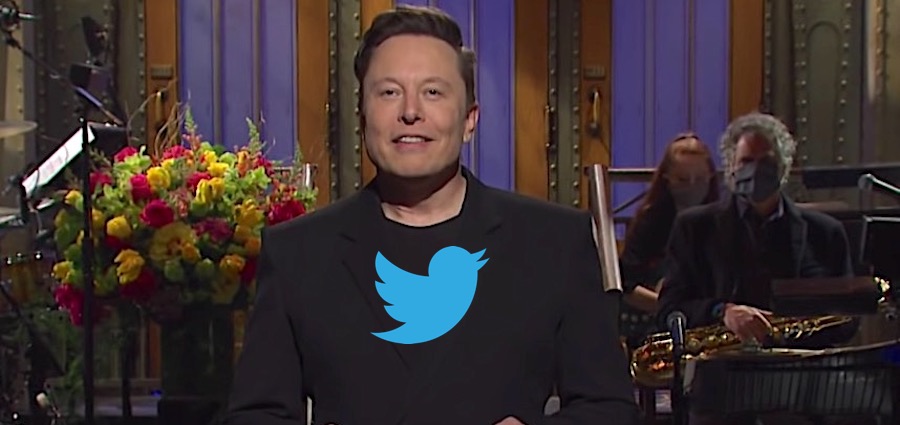THE INTERNETS. (THECOUNT) — In a series of tweets that captured widespread attention, Tesla and SpaceX CEO Elon Musk issued a stark warning about the future of life on Earth. Using his platform on X (formerly Twitter), Musk made a bold claim that a large comet will one day strike the planet, potentially wiping out most forms of life. His message emphasized the vulnerability of human existence on Earth and the urgency for humanity to become a spacefaring civilization.
Musk’s tweet read: “One of these days, a large comet will hit Earth and destroy almost all life, as has happened many times in the past. Eventually, the Sun will expand enough to boil the oceans and destroy all life. Either become a spacefaring civilization or die – those are the two choices.”
|
Advertisement |
While the notion of a comet strike is not new, Musk’s tweet reignited public discussion on the risks posed by space objects, as well as the need for humanity to expand beyond Earth to ensure long-term survival.
One of these days, a large comet will hit Earth and destroy almost all life, as has happened many times in the past.
Eventually, the Sun will expand enough to boil the oceans and destroy all life.
Either become a spacefaring civilization or die – those all the two choices. https://t.co/u9dItZugiP
— Elon Musk (@elonmusk) September 18, 2024
A History of Impacts:
Musk’s statement references the long history of catastrophic impacts Earth has endured. Scientists believe that the extinction of the dinosaurs around 66 million years ago was caused by a large asteroid or comet impact, an event that drastically changed the course of life on Earth. Similar events have occurred throughout Earth’s history, and while they are rare, they are not impossible.
In fact, NASA and other space agencies around the world monitor near-Earth objects (NEOs), which include asteroids and comets that come close to Earth’s orbit. NASA has an active program, known as the Planetary Defense Coordination Office, dedicated to identifying potential threats and mitigating the risk of a future collision. However, the challenge remains vast, and no current technology offers full protection against a large-scale impact.
The Threat from Space:
Elon Musk’s concern about a comet or asteroid strike is grounded in scientific fact. While the probability of such an event happening in the near future is low, the consequences of a major impact would be devastating. A large enough object could cause massive tsunamis, widespread fires, and block sunlight from reaching Earth’s surface, leading to drastic climate changes similar to what occurred during the extinction of the dinosaurs.
NASA has identified more than 25,000 NEOs, with some categorized as potentially hazardous. These are objects that come within 0.05 astronomical units (AU) of Earth and are large enough to cause significant damage. However, while these objects are closely monitored, there is no certainty that humanity could stop a large comet or asteroid from hitting Earth with current technology.
Musk’s call to action reflects his long-standing advocacy for making humanity a multi-planetary species. As the founder of SpaceX, he has consistently promoted the idea that colonizing Mars or other celestial bodies is essential for ensuring the survival of the human race.
Spacefaring Civilization: Musk’s Vision:
In his tweet, Musk reiterated a theme that has become central to his vision for the future: humanity must become a spacefaring civilization or face extinction. His company, SpaceX, has made significant strides in advancing space technology, with the development of the Starship spacecraft being one of the most notable achievements.
Musk has publicly stated his goal of landing humans on Mars and eventually establishing a self-sustaining colony there. He believes that spreading human civilization across multiple planets will significantly reduce the risk of extinction from natural disasters, such as asteroid impacts, supervolcanic eruptions, or other catastrophic events.
In 2020, SpaceX became the first private company to send astronauts to the International Space Station, marking a significant milestone in the commercial space industry. Starship, the spacecraft Musk envisions for interplanetary travel, is being designed to carry up to 100 passengers and significant cargo to Mars and beyond.
The Expanding Sun:
Another point Musk raised in his tweet was the eventual fate of Earth due to the natural evolution of the Sun. Scientists agree that in about 5 billion years, the Sun will expand into a red giant, a phase in which it will grow large enough to engulf the inner planets, including Earth. Long before that happens, the Sun’s increasing heat will render Earth uninhabitable, boiling the oceans and destroying any remaining life.
Musk’s comments are not purely speculative but are rooted in astrophysical predictions. However, this timeline extends billions of years into the future, while the threat of asteroid or comet impacts presents a more immediate risk, even if unlikely in the near term.
Conclusion:
Elon Musk’s tweet may have sparked a sense of urgency, but it underscores real scientific concerns about the future of humanity. Whether or not a catastrophic comet impact will happen in the near future, the long-term survival of the human race on Earth is far from guaranteed. Musk’s solution is clear: humanity must look beyond Earth and invest in becoming a spacefaring civilization to secure its future.
DEVELOPING::


